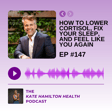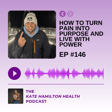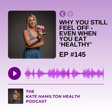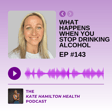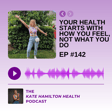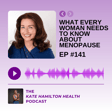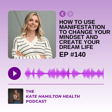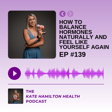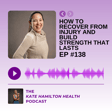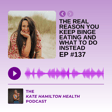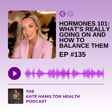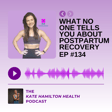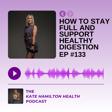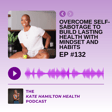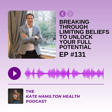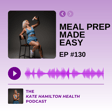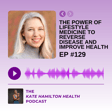
#125: Allyson Lean: How to rewire your mindset and stop the emotional eating spiral
Do you ever feel like you’re stuck in the binge-regret cycle - especially during the chaos of perimenopause? In this episode, I sit down with Allyson Lean from Mind Align Therapy, a clinical hypnotherapist and emotional eating specialist who helps midlife women take back control of their relationship with food.
We dive into how hypnotherapy supports women in navigating emotional eating, the subtle differences between physical hunger and emotional cravings, and why understanding the mind-body connection is essential during perimenopause. Allyson also opens up about her own transformation from nurse to therapist after facing burnout and health struggles. Plus, she shares super practical tools like journaling, slowing down, and tuning into your subconscious to break free from emotional eating - for good.
Whether you're feeling overwhelmed by cravings, juggling hormones, or just ready for a more empowered approach to food and body, this conversation is full of compassionate insights and actionable tips.
EPISODE HIGHLIGHTS:
[0:12] – Meet Allyson Lean from Mind Align Therapy and her mission to help women break the binge-regret cycle
[2:08] – From nursing to hypnotherapy: Allyson’s journey through burnout and self-healing
[5:13] – What hypnotherapy really is and why it’s so powerful for emotional eating
[12:36] – Common triggers behind emotional eating and how to start identifying them
[15:26] – The difference between emotional hunger and physical hunger (and why it matters)
[20:54] – How hypnotherapy helps rewire emotional eating patterns
[24:43] – Managing stress, cortisol, and food choices during perimenopause
[30:17] – Hormonal shifts, cravings, and how to bring balance back into your body
[39:17] – The building blocks of a healthy, sustainable lifestyle
Links & Resources:
If you enjoyed this episode, please subscribe, leave a review, and share it with friends who might benefit. For more health and fitness tips, follow me on Instagram and TikTok @katehamiltonhealth.
Music b LiQWYD Free download: hypeddit.com/link/xxtopb [http://hypeddit.com/link/xxtopb] Promoted by FreeMusicPromo [https://www.youtube.com/channel/UCbycji-eySnM3WD8mbxPUSQ] / @freemusicpromo

